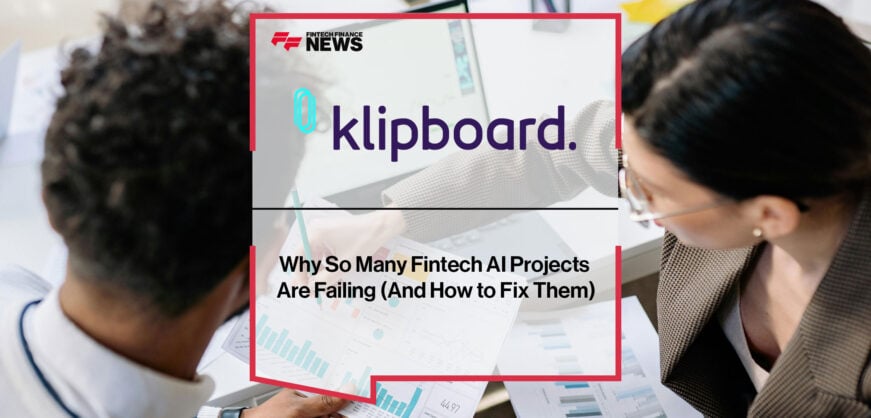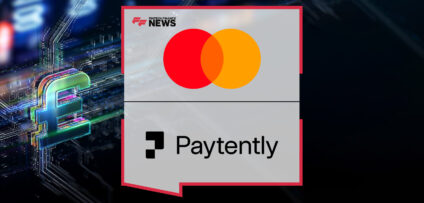Breaking News

Exclusive: ‘Showing the love for SMEs’ – Anders la Cour, Banking Circle in “The Fintech Magazine”
Access to finance has undoubtedly improved in recent years, but for SMEs (small and medium-sized enterprises), this improvement is not enough
Anders la Cour, Co-founder and CEO of Banking Circle, looks at the challenges and opportunities ahead for SME payment providers, and their vital role in financial inclusion.
Almost all of them need finance in their first few years, but while loans are an essential lifeline to many, they alone will not solve all the financial challenges that these small businesses face.
At Banking Circle, we are dedicated to improving access to banking solutions for businesses of all sizes, in all industries and in all geographies, whether they trade nationally or internationally. As part of this commitment, we regularly speak to businesses to find out what issues and challenges they are facing, and what the banking pain points are today. Recently, we commissioned MagnaCarta Communications to carry out a series of studies for us, looking into financial exclusion and how different financial institutions can each play a role in supporting SMEs and improving access to banking and finance solutions.
In 2019, we published a white paper, Financial Inclusion For Europe’s SMEs: Building A Circle Of Trust. Now we have published a payments-focussed insight paper, Pay, Set, Match! Payment Services For SMEs – Jump-starting A Virtuous Digital Payment Circle.
Unique insights from experts working right in the heart of the payments sector provide up-to-the-minute feedback on the state of the industry, current provision, the challenges and what the road ahead looks like. By gathering this range of first-hand insights, we believe we can work together with the wider industry to find better solutions, which meet the current needs of SMEs facing potentially lethal financial exclusion.
The challenge of serving SMEs
Effectively serving SMEs requires payment service providers (PSPs) and other financial institutions to have a true and meaningful understanding of the reality of small business life. Many PSPs are indeed SMEs themselves, which can be invaluable in assessing specific needs and the challenges SMEs might be facing. And this can put them in a strong position to develop solutions – working with like-minded partners – that exactly fit the bill.
But at the heart of the issue is the fact that PSPs must build solutions that are SME-specific, not based on a previous model built for larger businesses. And this is exacerbated by the fact that each SME is entirely unique – some are one-man bands, others have 249 employees; some are local businesses, others trade internationally; some are seasonal and others have a steady flow of income throughout the year. This immense variation creates a dilemma for financial institutions trying to build scalable solutions: no single payment solution can meet all the financial needs of every SME. There is no one-size-fits-all.
One thing all SMEs have in common, though, is the need for banking accounts, and almost all will, at some point, need an injection of cash, to kick-start an expansion, purchase stock at the beginning of the season or replace broken equipment.
A traditional business loan from a bank is generally too expensive, too inflexible and too slow to arrange for a fast-paced SME in today’s highly competitive, digital and international marketplace. As Kent Vorland, CEO of SmartTrade App, told us during our research: “Consumer products are not agile enough and providers have little knowledge of small businesses… Equally, the big boys have complicated functionalities, but nothing optimised for small merchants.”
Challenges facing SMEs
It didn’t take much investigation to establish that late payments, limited access to services and restricted credit lines are affecting the success and potential of SMEs of all sizes and stages. SMEs also commented that access to payment services is restricted, it takes too long to open a merchant account and there is little support for accounts payable.
Each of these can have a significant impact on an SME’s ability to maintain and grow its client base and profit margin. In turn, this limits its ability to expand, reach new markets, increase product lines and better serve its customers. With 24 million SMEs in Europe making up 99 per cent of private businesses in the region, employing around 60 per cent of the European workforce and contributing more than half of all business turnover, a problem holding back SMEs is a problem holding back the entire economy.

Michael Ault, CEO and Founder of Universal Transaction Processing, added: “SMEs have been through anarduous process to get a merchant services account, and then it takes days to get their funds.”
PSPs to the rescue
Ivo Gueorguiev, the chairman of Paynetics, told us: “Any service providers deploying digital technology are ideally placed to serve SMEs and address the problems of scalability, access, utilisation and viability.”
Supporting this view is recent research from marketplace lender Growth Street that showed nearly half of UK small businesses would be willing to move to a non-bank provider if their financial needs would be met in new and innovative ways.
The research conducted by MagnaCarta Communications also showed that artificial intelligence (AI) is being used to reduce audit processing times, automatically match payments to invoices, identify suppliers most likely to pay late and reduce fraud. Speeding up the process in this way reduces manual intervention, cuts the risk of manual errors and, of course, significantly reduces application and risk assessment time. In turn, this brings down the cost, delivering a more affordable, faster service to SMEs.
But a big part of the role PSPs need to play is in educating SMEs about it. We found that many are yet to be convinced of the benefits of digital technology in general. And this means they are not actively seeking digital banking and payment solutions, despite the fact that these could deliver a far better service than they receive from their current banking provider.
PSPs cannot change the minds of millions of SMEs overnight, or alone. So, while PSPs should see themselves as a key element in that change, education must be carried out via a collaboration of financial institutions across the entire industry. Each provider must share responsibility for kick-starting adoption rates among SMEs.
With many PSPs and other providers already delivering innovative ‘point’ solutions, and many ambitious SMEs currently underserved by their existing bank, the opportunity to build bridges and connect solutions is ready and waiting. Each provider has a role to play and value to add if they build relationships across the board.
As reported in our insight paper, financial inclusion based on digital technology occurs over a broad spectrum of technology,communication, collaboration and analytics. Innovation and real change is only possible in an ecosystem where each player knows its role and appreciates that of others.
Dialogues must be kept open and innovation must continue, in order to find and develop successful, effective, affordable solutions that will work for SMEs of all types, increasing financial inclusion and benefitting our economies as a whole.
- Why So Many Fintech AI Projects Are Failing (And How to Fix Them) Read more
- Mastercard, NCR Atleos, and ITCard to Enhance Contactless Experiences at ATMs Read more
- Paytently and Mastercard Partner to Launch Next- Generation Open Banking Payment Solution Read more
- Botim Expands UAE-Ethiopia Financial Corridor With Commercial Bank of Ethiopia Partnership Read more
- Onafriq and Visa Partner to Launch Visa Pay, Unlocking Interoperability Between Card and Mobile Money in the DRC Read more



















